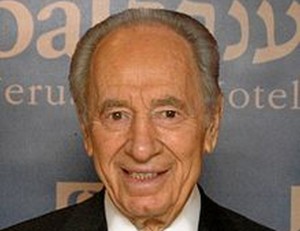If successful, such an attack would eliminate many of the people who represent a check on the Islamic Republic’s efforts to build its sphere of influence
 Tehran, September 28 – Military and political chiefs in the Islamic Republic of Iran are considering an attack on Israel this Friday when dozens of Western heads of state and leaders assemble in Israel to pay last respects to Shimon Peres, who died this morning, in an effort to eliminate opposition to Iranian ambitions for regional hegemony.
Tehran, September 28 – Military and political chiefs in the Islamic Republic of Iran are considering an attack on Israel this Friday when dozens of Western heads of state and leaders assemble in Israel to pay last respects to Shimon Peres, who died this morning, in an effort to eliminate opposition to Iranian ambitions for regional hegemony.
Peres, 93, succumbed to complications from a stroke he suffered two weeks ago, and is scheduled to be buried on Friday in Jerusalem. US President Barack Obama, former President Bill Clinton, the Prince of Wales, Pope Francis, and numerous other dignitaries have already announced plans to attend the funeral. The prospect of rival or enemy leaders gathered in one place has Iran’s upper political and military echelons considering the viability of an atomic strike on or near the location of the proceedings. If successful, such an attack would eliminate many of the people who represent a check on the Islamic Republic’s efforts to build and strengthen its sphere of influence in the Middle East and beyond.
Lieutenant General Douq Nouqqem of the Republican Guard reported to other senior commanders today that they should be on alert for orders to conduct such a strike, pending a final decision by Supreme Leader Ayatollah Ali Khamenei on the subject. While such an attack carries immense risks, explained the general, the opportunity to destroy so many opponents at once is not expected to present itself again anytime soon, if ever.
“Our Supreme Leader’s decisions tend to follow a deliberate, thoroughly considered process that takes the long-term view, and he is not in the habit of rashness,” General Nouqqem wrote in a message to the commanders of the relevant facilities and units. “However, given that this situation has developed only in the last day, and will not persist beyond Friday, a quick decision is necessary, and we must be prepared to act on a strike order.”
Analysts do not believe an attack will occur, primarily because of Israeli second-strike capabilities that Iran cannot currently suppress in an initial attack, and that targeting Obama might eliminate the one person who can continue to smooth the way toward an unfettered Iranian nuclear arsenal.
“What I would anticipate,” offered Ben Rhodes, a White House adviser, “is that Tehran will wait until President Obama’s departure after the funeral, a move that would still guarantee getting some world leaders and inflicting massive damage on Israel, but would not risk killing Obama himself, who could then be counted on to restrain Israel from a counterstrike.”
“Now would be the time,” he continued, “for select press outlets in the American media to start pushing a narrative of Israeli restraint, and the benefits to Israel of absorbing a punishing nuclear attack. So if you;ll excuse me, I have some people to call.”
Please support our work through Patreon.




